Filter by
SubjectRequired
LanguageRequired
The language used throughout the course, in both instruction and assessments.
Learning ProductRequired
LevelRequired
DurationRequired
SkillsRequired
SubtitlesRequired
EducatorRequired
Explore the Solidity Course Catalog
 Status: Free Trial
Status: Free TrialThe State University of New York
Skills you'll gain: Digital Assets, Blockchain, Market Liquidity, FinTech, Financial Market, Cryptography, Cryptographic Protocols, Financial Systems, Distributed Computing, Governance, Identity and Access Management, Market Data, Financial Regulation, Asset Management, Web Applications, Transaction Processing, Payment Systems, Financial Services, Emerging Technologies, Investments
 Status: Free Trial
Status: Free TrialAssociation of International Certified Professional Accountants
Skills you'll gain: Blockchain, Key Management, Digital Assets, Asset Management, Cryptography, Security Management, Cybersecurity, FinTech, Security Awareness, Emerging Technologies, Security Controls, Multi-Factor Authentication, Payment Systems, Authentications, Financial Market, Encryption, Financial Regulations, Distributed Computing, Accounting and Finance Software, Technology Solutions
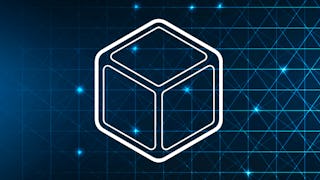 Status: Free Trial
Status: Free TrialSkills you'll gain: Blockchain, FinTech, Emerging Technologies, Cryptography, Digital Assets, Distributed Computing, Digital Transformation, Public Key Cryptography Standards (PKCS), Transaction Processing, Information Privacy, Governance, Network Security, Data Integrity, Financial Services
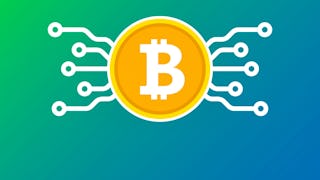 Status: Free Trial
Status: Free TrialUniversity of Pennsylvania
Skills you'll gain: Blockchain, Cryptography, Digital Assets, Investments, Portfolio Management, FinTech, Financial Analysis, Financial Market, Emerging Technologies, Transaction Processing, Distributed Computing, Risk Analysis
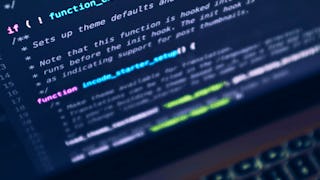 Status: Free Trial
Status: Free TrialLearnQuest
Skills you'll gain: Blockchain, Key Management, Threat Modeling, Application Security, Computer Security, Security Controls, Cryptography, Security Testing, Cybersecurity, Security Requirements Analysis, Data Security, Information Systems Security, Network Security, Security Engineering, Vulnerability Assessments, Encryption, Secure Coding, Cryptographic Protocols, Cyber Security Assessment, Distributed Denial-Of-Service (DDoS) Attacks
 Status: Free Trial
Status: Free TrialUniversity of Michigan
Skills you'll gain: Blockchain, Emerging Technologies, FinTech, Market Dynamics, Digital Assets, Cryptography, Technical Analysis, Business Solutions, Business Analysis, Payment Systems, Algorithms, Distributed Computing
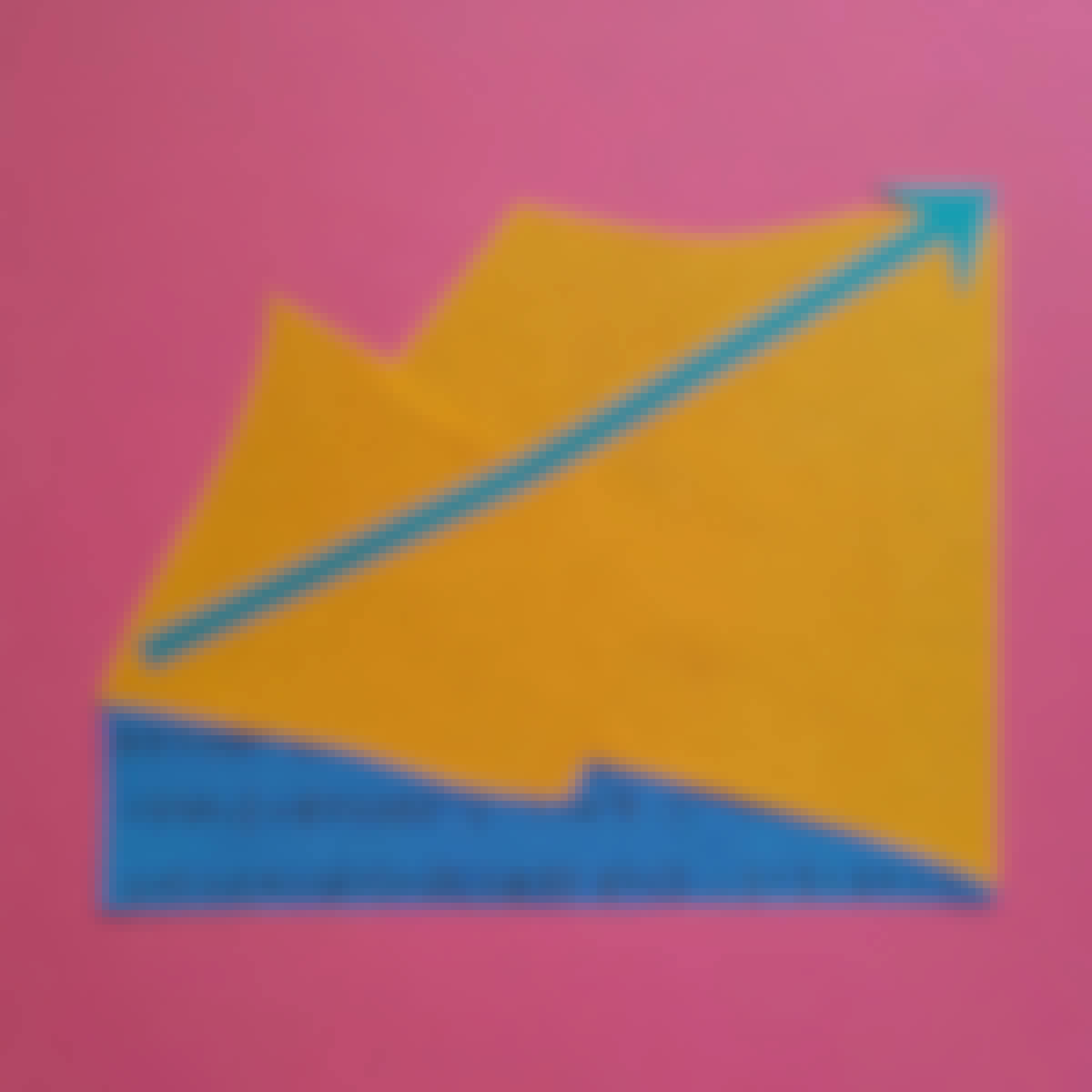 Status: Free Trial
Status: Free TrialUniversità di Napoli Federico II
Skills you'll gain: Market Liquidity, Securities Trading, Financial Market, Market Dynamics, Equities, Market Data, Technical Analysis, Financial Regulation, Order Processing, Algorithms
 Status: New
Status: NewSkills you'll gain: Agentic systems, Blockchain, Emerging Technologies, AI Personalization, Artificial Intelligence, Generative AI, Semantic Web, Web Applications, Business Ethics, Digital Assets, Governance

Universidad Austral
Skills you'll gain: Blockchain, FinTech, Internet Of Things, Emerging Technologies, Digital Transformation, Public Administration, Financial Services, Governance, Cryptography, World History
 Status: Free Trial
Status: Free TrialSkills you'll gain: Blockchain, Digital Assets, FinTech, Business Modeling, Financial Systems, Emerging Technologies, Business Transformation, Distributed Computing, Transaction Processing, Identity and Access Management

Universidad Austral
Skills you'll gain: Technical Analysis, Digital Assets, Investments, Financial Trading, Blockchain, Portfolio Management, Market Trend, Financial Analysis, Market Data, Asset Management, FinTech, Trend Analysis, Data Mining, Operating Cost, Operating Expense, Risk Management, Decision Making
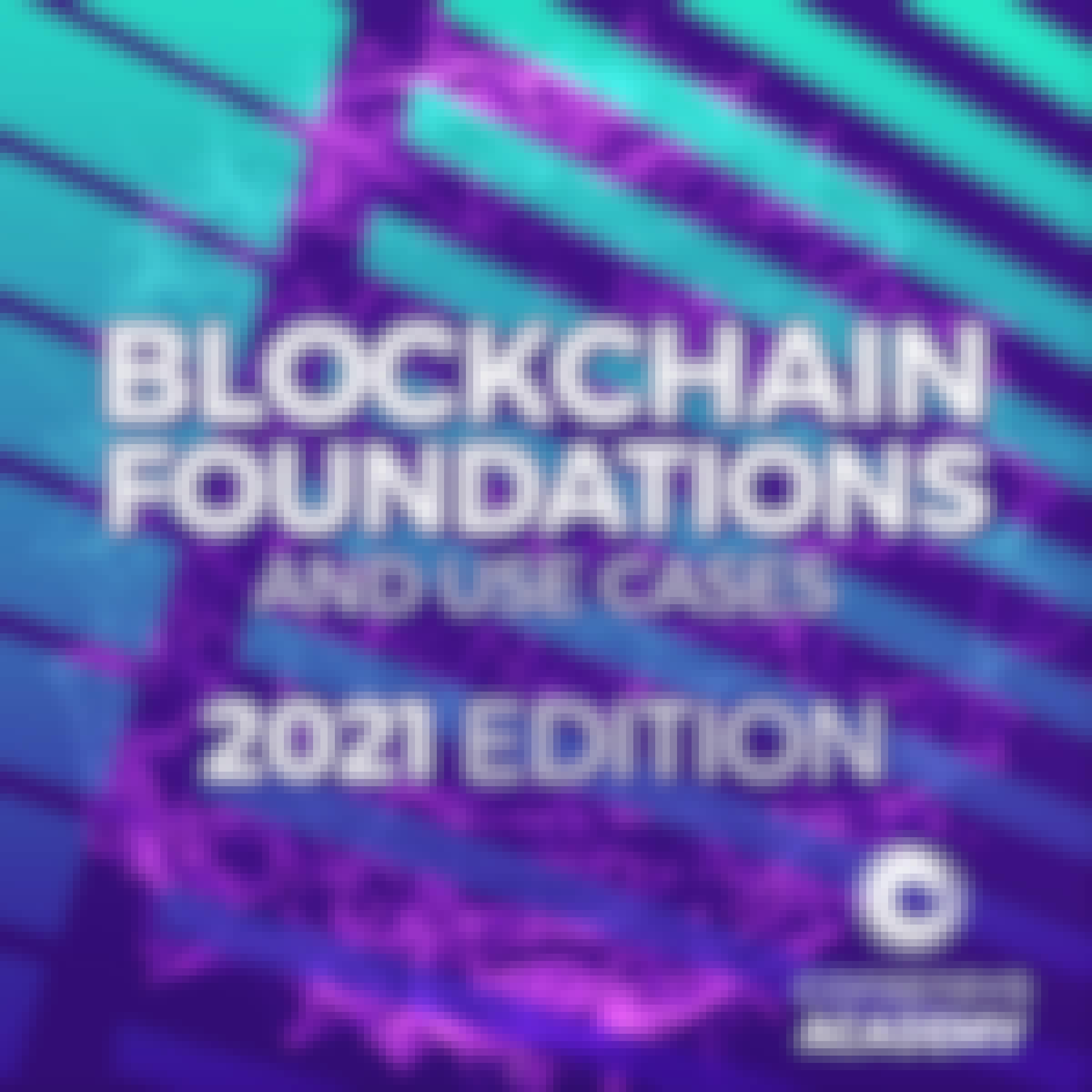
ConsenSys Academy
Skills you'll gain: Blockchain, Cryptography, Interoperability, FinTech, Emerging Technologies, Ledgers (Accounting), Business Modeling, Distributed Computing, Digital Assets, Data Sharing, Data Integrity, Transaction Processing
Solidity learners also search
In summary, here are 10 of our most popular solidity courses
- Decentralized Finance (DeFi) for Everyone: The State University of New York
- Introduction to Blockchain: Association of International Certified Professional Accountants
- Introduction to Blockchain Technologies: INSEAD
- Cryptocurrency and Blockchain: An Introduction to Digital Currencies: University of Pennsylvania
- Security for Blockchain and DApps: LearnQuest
- Blockchain and Cryptocurrency Explained: University of Michigan
- Market Microstructure: Università di Napoli Federico II
- Generative AI and Blockchain: INSEAD
- La Disrupción del Blockchain: Universidad Austral
- Blockchain, Cryptoassets, and Decentralized Finance: INSEAD










